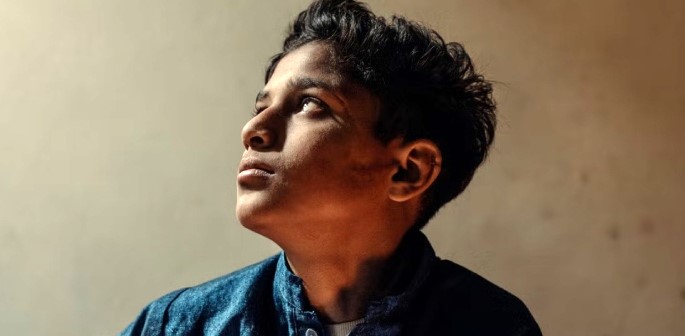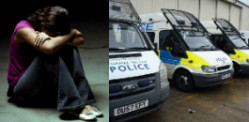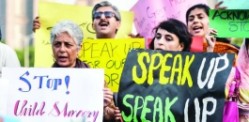"We took turns having our way with them"
Child sex abuse is a pervasive issue that has plagued Pakistan for far too long.
It is a crime that remains severely underreported, making it difficult to measure the true extent of the problem.
The cases that have come to light are distressing. However, it is worth noting that they do not even include instances of child grooming.
In Pakistan, male victims of child sex abuse face additional barriers to coming forward. Often shame, guilt, and fear prevent them from sharing their experiences.
This article aims to shed light on this pressing issue and raise awareness about the challenges faced by victims.
Victims of child sex abuse in Pakistan face another significant hurdle when seeking help: the state of mental health resources.
Access to mental health services is often limited and expensive, leaving victims with few options for assistance.
Moreover, the judgmental attitudes prevalent within society make it difficult for victims to find a safe and empathetic environment.
This prevents them from starting their healing journey. The lack of support further exacerbates the trauma experienced by survivors.
The Sahil organisation, an aid group in Pakistan, illustrated how vital it is to stop this type of abuse in their annual report titled ‘Cruel Numbers’.
They outlined that in 2022 alone there were 4253 cases of child sex abuse in Pakistan.
According to their data, 45% of victims were boys and “the sexual abuse of boys mostly took place between the ages of six and 15”.
DESIblitz, to address this issue, spoke to several victims who bravely shared their stories. They provided a glimpse into the harrowing experiences endured by them.
Childhood Trauma

To aid the wider view of how poignant and widespread this issue is in Pakistan, we first spoke to Asad*, a business student residing in Islamabad who recounted his ordeal:
“It started when I was eight years old, and my family lived in Attock.
“I used to play with my friends and a lot of older guys came to hang out with us.
“They used to inappropriately touch us.”
Asad’s childhood innocence was shattered at a young age when he and his friends fell victim to molestation.
The perpetrators took advantage of their vulnerability and manipulated them into engaging in inappropriate acts.
The innocence of their childhood was abruptly taken away, marking the beginning of a dark and painful journey.
Umair*, another victim shares his story:
“I had visited to see my friend but only his older brother was home.
“He took me to the store room and had his way with me. I never told anyone. Not even my friend.”
Upon asking Umair why he didn’t tell someone. He said:
“Who could I tell? My parents used to beat me at every little mistake. I was afraid they would hit me.
“I was convinced that it was my fault.”
It is very unfortunate to say, the answer of all our victims somewhat resembled Umair’s statement.
They were either afraid they would be blamed and judged or they were just too afraid to admit it.
We now come to a more important question. How common is it?
Harris*, another survivor, emphasises the problem of child sex abuse in rural areas:
“In my town, it’s as common as secretly going out of your house to smoke so your parents don’t find out.”
Umair shares a grave revelation:
“In my class, nine out of 45 boys were getting abused.”
One might assume that the extent of child sex abuse would be lower in rural, less developed areas of Pakistan.
This presumption is dominant due to the traditional values that are deeply ingrained in close-minded societies.
However, it is precisely these regions where such crimes silently brew for years, unreported and unaddressed.
The lack of awareness, education, and resources in these areas contributes to the perpetuation of abuse.
Victims often suffer in silence due to the absence of support structures and the fear of social stigma associated with disclosing such incidents.
Sohail* explains why young boys are targeted, stating:
“They’re young, clueless, and male. No one suspects a thing.
“After all, it is only deemed scandalous if men are seen with women or girls.”
This societal bias maintains the silence and makes it easier for predators to operate undetected.
Victim to Predator

Asad’s group, who endured molestation from the ages of eight to 13, suffered profound psychological damage.
Trapped in an environment where abuse was a learned behaviour, it was only a matter of time. They continued the cycle as predators themselves.
Asad reveals:
“There was only one thing that we learned. You either f**k or you get f****d.”
Sohail shares a disturbing revelation:
“We used to bully kids and take them to a building that had been left mid-construction. There, we took turns having our way with them.”
It is disheartening to discover that these victims-turned-perpetrators were only around 13-15 years old.
They started subjecting other innocent children to the same horrors they experienced.
Umair expresses his stance on this:
“Animals die of pain. Humans pass it on, like a disease.”
And so, the cycle of abuse continues.
Victims of child sex abuse are robbed of their innocence and the effects of abuse shape every aspect of their lives.
It also hinders their normal development, leaving lasting scars.
Harris reflects on the lost opportunities of his childhood, sharing:
“While other kids were learning drawing, painting, and playing cricket, I was learning how to please older men.”
Over time, the group we interviewed came to realise the gravity of their actions. Asad relates:
“Around the age of 16, I began to understand that what we were doing was wrong.
“However, with my whole friend group involved, I couldn’t stop at that time.
“It was only a year later that the weight of guilt hit me, and I decided to stop.”
Their journey took a crucial turning point, where they started to question their behaviour. They began to recognise the harm they were inflicting on others.
Asad, now remorseful for the pain he caused, says:
“I have grown up, but I have to live with what I did. I know I ruined their childhood and perhaps even their lives.
“I just hope they receive the help I am getting.”
Harris expresses deep regret for his actions, acknowledging his mistakes:
“I can never forgive myself for what I did. But we didn’t know any better.
“It was so normalised there that we didn’t even recognise it as wrong.”
These words display the lack of resources and guidance young boys in Pakistan have.
Without proper protection, these and other victims found it ‘normal’ to turn to the actions that caused them so much trauma.
Sexual Relationships and Getting Help

One may wonder how the abuse affected our victims’ relationships and sex lives. So, we did the asking for you.
Asad discloses the difficulties he faces in maintaining relationships, revealing:
“I can’t maintain any relationship. I get frustrated and try to rush into the sexual part instead of investing time in the relationship.”
His experience reflects the significant impact of abuse on his ability to form emotional connections.
The trauma he endured has distorted his approach to intimacy, making it challenging to establish healthy and meaningful connections.
Harris expresses the conflict he feels between societal expectations and his sexual interests, stating:
“I wish I could settle down with a nice woman, as my parents want.
“But I am not sexually interested in them.
“My abusers shaped me into something that’s a crime here.”
As we all are aware, homosexuality is still a crime punishable by death in Pakistan.
So, Harris can never have a real relationship with someone he is interested in. His only hope to experience it is if he gets out of the country.
Sohail shares the psychological issues he grapples with:
“I have never had long-term relationships due to my behavioural problems, which my therapist believes have roots in the abuse.
“I have bipolar disorder, anger issues, and depression.”
We now come to the part where we discuss how could this be prevented or minimised.
After a discussion with our victims, they highlighted some key things that could have saved them from their misfortune.
Asad emphasises the significance of parental involvement and education as crucial preventive measures. He states:
“I think parents should invest more in children’s lives and help them talk about their problems so they don’t have to escalate to this and get abused or abuse other children.
“They should also be educated about ‘bad touch’, which is such a taboo thing to talk about in Pakistan.”
Haris expresses his viewpoint, stating:
“If it is so embarrassing for people to talk about it to their kids, then the least that could be done is introducing sex education in schools.
“It is so important, but our people are more worried about it corrupting their kids’ young minds rather than them being abused!”
Umair states his stance, adding:
“I feel like Pakistani parents should have a stronger relationship with their kids.
“Gone are the days when you beat your children to teach them good from bad.
“If your kid is scared of you, how will they ever come to you with their problems?”
Asad talks about how he overcame his problems after moving to the city:
“I experienced a positive change when I moved and made more mature friends.
“We had open conversations about my past experiences, and their support made me realise that I wasn’t alone.
“Their understanding and guidance helped me grow as a person. I am grateful for their presence in my life.”
Child sex abuse in Pakistan, particularly involving male children, remains a distressing problem that often goes unaddressed.
The reason is cultural taboos and societal reluctance to openly discuss it.
The prevailing silence surrounding this issue upholds a cycle of abuse and denies young boys the protection they deserve.
Additionally, the absence of comprehensive sex education in Pakistan further hinders efforts to prevent such abuse and leaves children vulnerable.
It is crucial to recognise and acknowledge the challenges faced by male victims.
It is also important to actively support initiatives that break the silence, challenge norms, and prioritise the well-being of all children.






























































